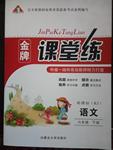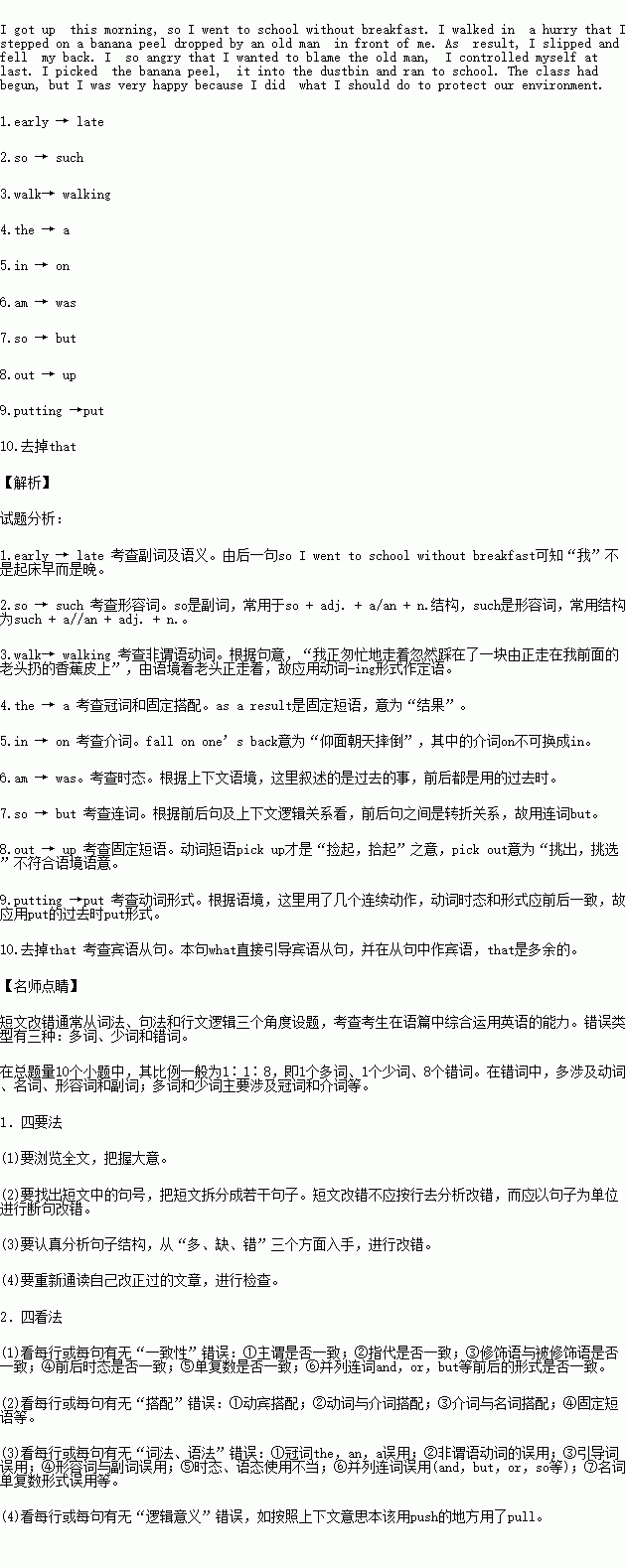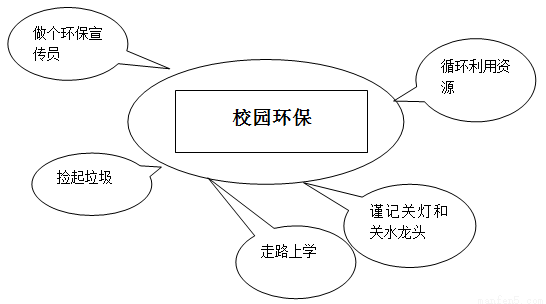ΧβΡΩΡΎ»ί
ΕΧΈΡΗΡ¥μ
ΦΌΕ®”Δ”οΩΈ…œάœ Π“Σ«σΆ§Ήά÷°ΦδΫΜΜΜ–όΗΡΉςΈΡΘ§«κΡψ–όΗΡΡψΆ§Ήά–¥ΒΡ“‘œ¬ΉςΈΡΓΘΈΡ÷–Ι≤”–10¥Π”ο―‘¥μΈσΘ§ΟΩΨδ÷–ΉνΕύ”–ΝΫ¥ΠΓΘΟΩ¥Π¥μΈσΫω…φΦΑ“ΜΗωΒΞ¥ ΒΡ‘ωΦ”ΓΔ…Ψ≥ΐΜρ–όΗΡΓΘ
‘ωΦ”ΘΚ‘Ύ»±¥ ¥ΠΦ”“ΜΗω¬©Ή÷ΖϊΚ≈(ΓΡ)Θ§≤Δ‘ΎΤδœ¬Οφ–¥≥ωΗΟΦ”ΒΡ¥ ΓΘ
…Ψ≥ΐΘΚΑ―Εύ”ύΒΡ¥ ”Ο–±œΏ(©Ö)Μ°ΒτΓΘ
–όΗΡΘΚ‘Ύ¥μΒΡ¥ œ¬Μ≠“ΜΚαœΏΘ§≤Δ‘ΎΗΟ¥ œ¬Οφ–¥≥ω–όΗΡΚσΒΡ¥ ΓΘ
ΉΔ“βΘΚ1. ΟΩ¥Π¥μΈσΦΑΤδ–όΗΡΨυΫωœό“Μ¥ ;
2. ÷Μ‘ –μ–όΗΡ10¥ΠΘ§Εύ’Ώ(¥”ΒΎ11¥ΠΤπ)≤ΜΦΤΖ÷ΓΘ
I got up early this morning, so I went to school without breakfast. I walked in so a hurry that I stepped on a banana peel dropped by an old man walk in front of me. As the result, I slipped and fell in my back. I am so angry that I wanted to blame the old man, so I controlled myself at last. I picked out the banana peel, putting it into the dustbin and ran to school. The class had begun, but I was very happy because I did that what I should do to protect our environment.
 Ϋπ≈ΤΩΈΧΟΝΖœΒΝ–¥πΑΗ
Ϋπ≈ΤΩΈΧΟΝΖœΒΝ–¥πΑΗ »ΐ–¬Ωλ≥ΒΫπ≈Τ÷ή÷ήΝΖœΒΝ–¥πΑΗ
»ΐ–¬Ωλ≥ΒΫπ≈Τ÷ή÷ήΝΖœΒΝ–¥πΑΗ

